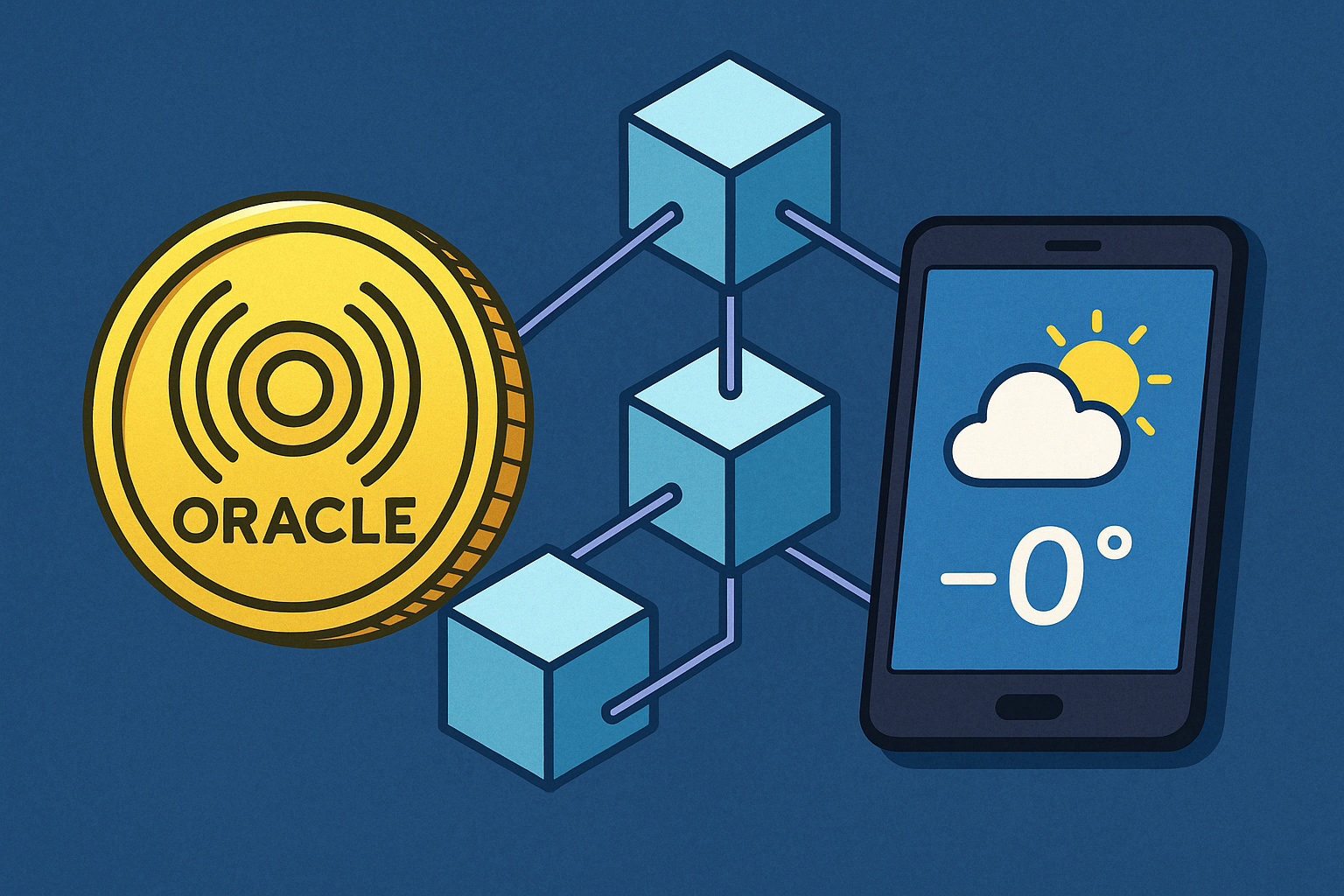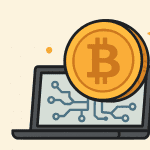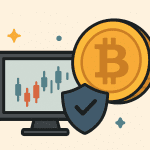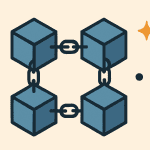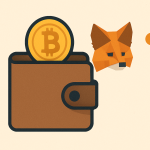If you’re new to blockchain or cryptocurrency, you might have heard of something called an “oracle.” But what does that mean?
In this simple guide, we’ll explain what blockchain oracles are, how they work, and why they are important for smart contracts and the future of decentralized apps (dApps).
Contents
What Is a Blockchain Oracle?
A blockchain oracle is a service or tool that connects the blockchain with the real world. It gives smart contracts access to external data—things that exist outside the blockchain.
Blockchains are great for security and transparency, but they can’t see or know anything beyond their own network. That’s where oracles come in.
In simple words:
Oracles are like messengers. They bring data from the outside world into the blockchain, so smart contracts can use it.
Why Do We Need Oracles?
Smart contracts are self-executing programs that live on the blockchain. They run automatically when certain conditions are met.
Example:
A smart contract says, “If the temperature in New York goes below 0°C, send $50 in USDC to Alice.”
But how will the smart contract know the temperature in New York?
It needs an oracle to provide that information.
Other examples of real-world data oracles can bring:
-
Cryptocurrency prices
-
Sports results
-
Stock prices
-
Weather reports
-
Flight delays
-
Election outcomes
Without oracles, smart contracts can only use data that is already on the blockchain.
How Do Oracles Work?
Oracles are usually made up of two parts:
-
Off-chain component – Connects to outside data sources (like websites, APIs, or devices).
-
On-chain component – Sends that data into the blockchain where the smart contract can use it.
Here’s how it works step-by-step:
-
A smart contract requests data.
-
The oracle collects that data from a trusted source.
-
The oracle delivers the data to the smart contract on the blockchain.
-
The smart contract uses the data to complete its task.
Types of Oracles
There are different types of oracles depending on what they do and where they get data from:
| Type | Description |
|---|---|
| Inbound Oracle | Brings data into the blockchain (e.g., price feeds, weather info) |
| Outbound Oracle | Sends blockchain data out to real-world systems (e.g., send notification) |
| Software Oracle | Gets data from the internet (websites, APIs) |
| Hardware Oracle | Gets data from devices (e.g., sensors, barcode scanners) |
| Human Oracle | A real person who enters trusted data (e.g., judge decision) |
| Decentralized Oracle | Uses multiple sources to avoid relying on one person or company |
What Is a Decentralized Oracle?
Most oracles are centralized, which means one source controls the data. That’s risky because:
-
The data could be wrong
-
It could be hacked or manipulated
Decentralized oracles solve this by collecting data from many different sources and combining the results. This makes the information more accurate and secure.
Popular decentralized oracle networks:
-
Chainlink
-
Band Protocol
-
API3
-
Witnet
These projects help smart contracts get reliable real-world data without trusting a single source.
Real-World Uses of Oracles
Oracles are already used in many real blockchain applications:
-
DeFi (Decentralized Finance)
Example: Price feeds for lending and trading platforms (e.g., Aave, Uniswap) -
Insurance
Example: Smart contracts pay out automatically based on weather or flight delay data. -
Gaming and NFTs
Example: Game results or real-world sports data used to trigger in-game rewards. -
Prediction markets
Example: Oracles confirm the result of an election or sports game.
Are Oracles 100% Trustworthy?
Oracles solve a major problem for blockchains, but they come with risks:
-
Centralized oracles can be manipulated or hacked.
-
Bad data from a source can lead to incorrect smart contract behavior.
-
Latency (delay in data delivery) can impact fast-moving markets.
That’s why many developers choose decentralized oracle networks that use multiple data sources and strong security.
Final Thoughts
Blockchain oracles are an essential part of the web3 world. They help smart contracts connect with real-world data and unlock powerful use cases.
Without oracles, smart contracts would be blind—limited only to on-chain data. With oracles, they can interact with real events, prices, and even weather.
If you’re exploring crypto, DeFi, or smart contracts, learning how oracles work is a smart step toward understanding the full potential of blockchain.
